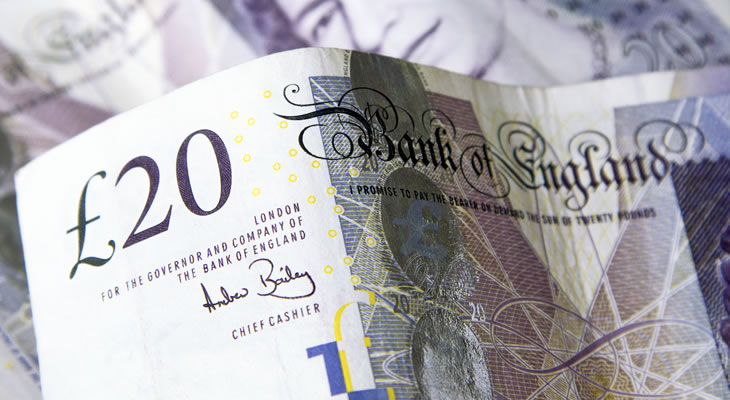Pound Euro (GBP/EUR) Exchange Rate Slips as UK Employment Rises to High of 76.1%
The Pound Sterling Euro (GBP/EUR) exchange rate slipped and the pairing is currently trading at around €1.1520.
The UK unemployment rate dipped to a 44-year low of 3.8% in the three months leading to March.
Unemployment for women in the UK fell to a record low of 3.7%.
Meanwhile, the number of people in work stood at 76.1% the joint-highest since records began in 1971.
Providing further support for Sterling, economic inactivity fell close to a record low of 20.8%.
However, data also revealed that workers’ pay did not rise as high as forecast.
This suggests the UK labour market is cooling as demand for labour has slowed.
Sterling (GBP) Edges Down as Brexit Pessimism Boosts Employment
The Office for National Statistics (ONS) revealed that the dip in unemployment was entirely down to more people working full-time.
Commenting on the data, Senior Economist at Hargreaves Lansdown, Ben Brettell said:
‘Just how low can [unemployment] go?
‘The UK labour market has been remarkably resilient in the face of Brexit-related uncertainty. These are really strong numbers given the headwinds he economy is currently facing.’
Meanwhile, it has been suggested that the rise in UK employment is largely due to Brexit pessimism which likely weighed on Sterling.
Reports have suggested that some firms are hiring over investing money in expensive machinery.
Euro (EUR) Rises despite Surprise Fall in German Economic Sentiment
Meanwhile, the German ZEW economic sentiment survey revealed that May’s figure fell to a worse-than-expected -2.1.
Despite a forecast rise to 5 from 3.1, economic sentiment slipped back into contraction territory.
Commenting on the data, ZEW President Professor Achim Wambach stated:
‘The decline in the ZEW Indicator of Economic Sentiment shows that the financial market experts continue to expect restrained economic growth in Germany for the next six months. The most recent escalation in the trade dispute between the USA and China again increases the uncertainty regarding German exports – a key factor for the growth of the gross domestic product.’
Pound Euro Outlook: Will Disappointing Eurozone GDP Weigh on EUR?
Looking ahead to Wednesday, the Euro (EUR) could rise against the Pound (GBP) following the release of Germany’s GDP for Q1.
If German GDP rises higher than forecast during the first three months of 2019, it could provide the single currency with an upswing of support.
However, the release of the Eurozone’s preliminary GDP for Q1 may cause the euro to slip against the Pound.
If GDP does not rise as high as expected, it could cause the Pound Euro (GBP/EUR) exchange rate to rise.


Comments are closed.